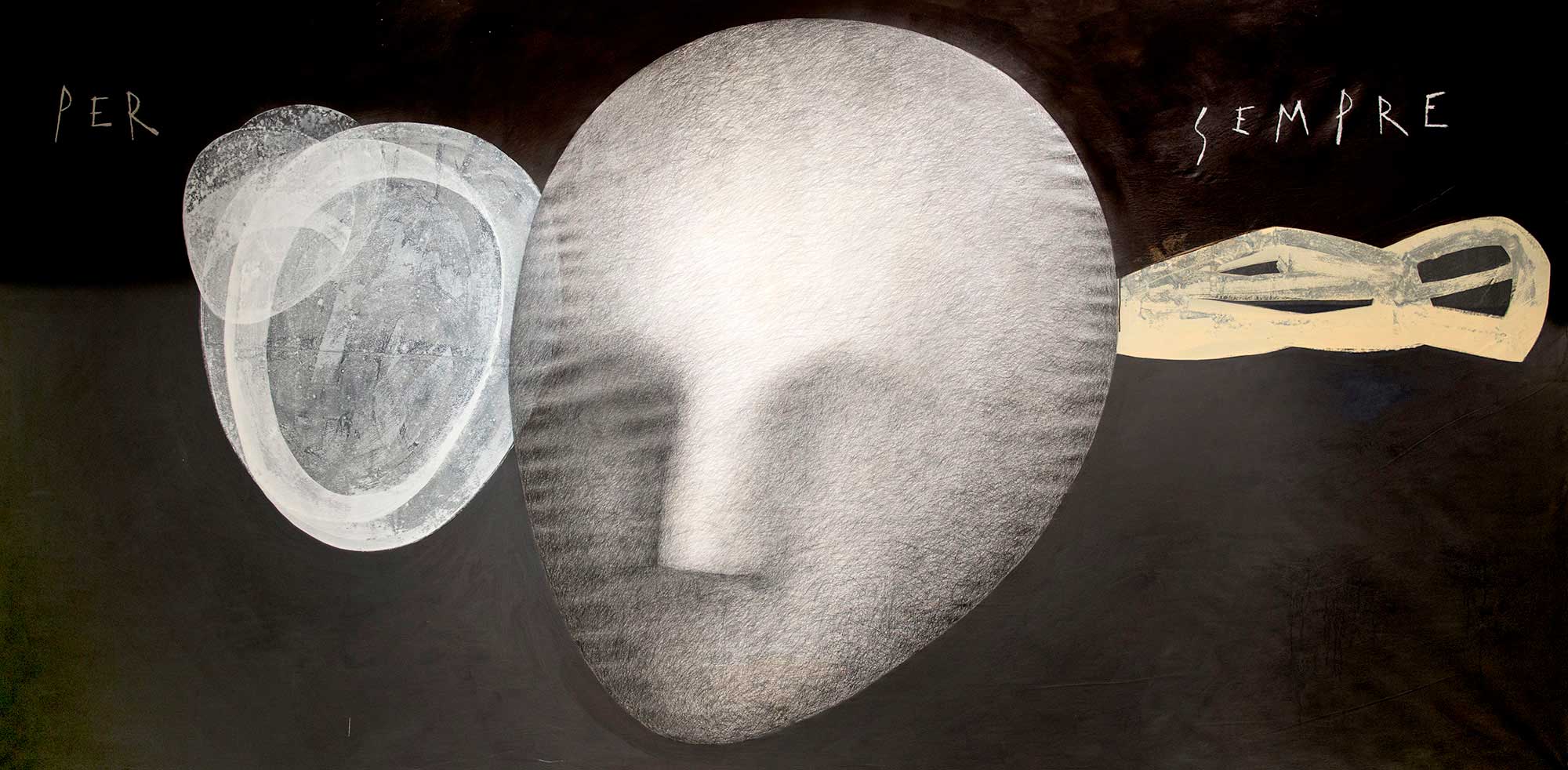Forever
Oreste Casalini
Out of Place
7 Dec 2019 - 29 Jan 2020
Vernissage
Saturday 7 Dec 2019 | 17:00-23:00
Critics
Fabrizio Pizzuto
Artist profile
Oreste Casalini
Catalog
Oreste Casalini
Catalog
Art, like life, is a constant struggle between something that wants to emerge and something that wants to disappear, to sink, to hide from the sight of others and above all from the awareness of ourselves. Working with the spirit of the researcher means constantly living this conflict. Research means to launch oneself with confidence into the darkness of uncertainty, to try new solutions, to suspend all pre-judgment, to inhabit an intermediate space in which to risk the con-fusion, to question the acquired knowledge, to consider the paralysis, the perplexity, the deception. In this sense, doing research means chasing a shadow, a nascent form that, while it manifests itself, denies itself, wants to return to a distortion, a shapeless stain. To do this it is necessary to have a martial discipline, to know how to relate the unknown with the already known, to live in a space where it is impossible to predict what connections will be made, what failures await around the corner.
The work of the artist, like that of the monk and that of the scientific researcher, is a secret and secret work that for the world has the taste of a radical and scandalous proposal. A proposal that in its exemplary failure represents a monument, a memento, an indelible trace of the deviation from the path that reality has inexorably taken. The man who dedicates his life to research is a Homo Sacer, separated from the logic that power has set up for everyone; he is the one who accepts his marginality. It is Ulysses, after his longed-for return to Ithaca, who does not rest to admire the path he has taken, but secretly takes up the sea again.
The artist is instead the Faber man. He guards the wisdom of constructing admirable things but must choose at every step: to be enveloped by his own obsessions, to let himself go to the blind risk or to accept the well-designed enclosure of conventions and shelter in conformism.
To do research one must cultivate secret hopes, counteract the temptation to give in to vulgar resignation, be willing to pay a price for one's obstinacy; because the intimate devotion of the researcher goes to the work, to the result, not to the creator; only the work forged from scratch can in fact redeem a life, found a new will, resonate with an unprecedented perfection. The works, the result of doing, are, in this sense, the only real human miracle, they represent the holiness of what we put into the world, creating our world. To set to work with the right spirit it is necessary to know how to calm the activity of the mind and access an inner space free from prejudices, a necessary and silent premise for every form of spiritual discipline. To do research, ultimately, it is necessary to cross the silence, which like the void, does not exist. With J. Cage, silence means giving priority to listening to ourselves, total openness to every vibration that can become an experience. Silence is a limit and an opportunity, a threshold, an overlook on an otherwise unreachable elsewhere.
The constant search for a fragment of truth is the 'Forever' to which the title of this event alludes, an ideal place where it is possible to experience the only specific human activity that has the mission of perpetuating what it always is.

